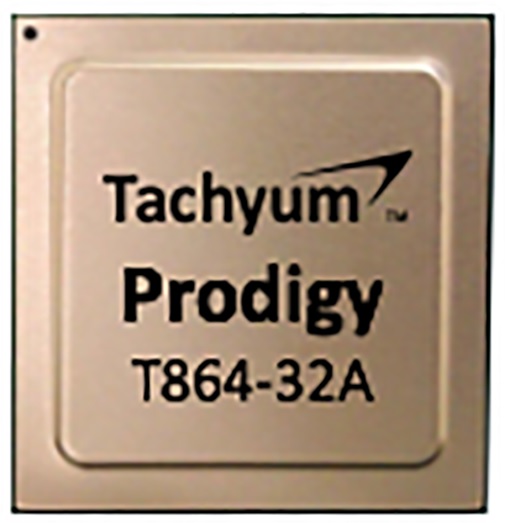SAN JOSE, California, USA, 18-Sep-2019 — /EPR COMPUTER NEWS/ — Today, Tachyum announced that Dr. Kurt Lauk has joined the company’s Board of Advisors. Dr. Lauk served on several management boards, including Daimler and Audi, and as a member of the EU Parliament. For 15 years, he was Chairman of the Economy Council (Wirtschaftsrat) and advised Angela Merkel in that capacity. He is Founder and President of Globe CP GmbH, a personally owned family office since 2000.
Dr. Lauk brings to Tachyum’s Board of Advisors valuable insights regarding European industries, including his deep understanding of European manufacturers and suppliers, along with expertise in international strategy and extensive experience bringing technology innovations to market.
Dr. Lauk has extensive European business experience, primarily through his positions as a Member of the Board of Management and Head of Worldwide Commercial Vehicles Division of Daimler Chrysler (1996-1999), as well as Deputy Chief Executive Officer and Chief Financial Officer of Audi AG (1989-1992).
Dr. Lauk currently serves as independent director on the supervisory boards of Magna Inc (Toronto), and Fortemedia (Cupertino). In July 2018 Nomura, Asia’s global investment bank, appointed him as Germany and Austria Advisory Board Chairman. Since 2000 he is a Trustee of IISS (International Institute of Strategic Studies in London). He previously held the position of Chief Executive Officer at Zinser Textil Machinery GmbH, 1978-1984 Vice President/Consultant/Partner at Boston Consulting Group, and Chief Financial Officer & Controller for VEBA AG (today E.ON SE).
Dr. Lauk earned a graduate degree from Ludwig-Maximilians-Universität München, an MBA `77 from Stanford Graduate School of Business and a doctorate in international politics from the University of Kiel. His extensive and varied experience includes service as a Member of the European Parliament (2004 2009), including as a Member of the Economic and Monetary Affairs Committee, and as a Deputy Member of the Foreign and Security Affairs Committee.
“Tachyum is honored to have an international business and technology luminary of Dr. Lauk’s caliber on our Board of Advisors,†said Dr. Radoslav Danilak, Tachyum’s Founder and CEO. “I am personally excited to work directly with Kurt, to be able to rely on his advice and counsel, especially regarding EU business strategies and how Tachyum can help facilitate EU technological sovereignty.â€
“Today, Slovakia is the world’s largest per capita car producer. I look forward to working with Tachyum and Dr. Lauk to identify Prodigy value-added insertion points within Industry 4.0 and the automotive sector,†said Adrian Vycital representing Tachyum’s lead investor IPM, “We believe Tachyum will play an essential role in creating an innovation ecosystem, which is a key factor in the transformation of the Slovak economy from manufacturing to knowledge-based.â€
Tachyum is on track with the design of its flagship product, code named Prodigy, the world’s first Universal Processor. High performance and ultra-low power, Prodigy offers industry-leading performance for data center, AI, and HPC workloads. With telecoms transitioning to 5G, Prodigy will bring AI from cell tower mounted datacenters to power intelligent IoT devices and autonomous systems. Tachyum is planning a 7nm tapeout next year, with volume production in 2021.
Tachyum’s Prodigy Universal Processor Chip is the smallest and fastest general purpose, 64-core processor developed to date, requiring 10x less processor power, and reducing processor cost by 3x. Prodigy will directly enable a 32-Tensor Exaflop supercomputer and allow the building of machines more powerful than the human brain by 2021, years ahead of industry expectations. Prodigy reduces data center TCO (annual total cost of ownership) by 4x, through its disruptive processor architecture and a smart compiler that has made many parts of the hardware found in typical processors redundant. Fewer transistors, fewer and shorter wires, due to a smaller, simpler core, translates into much greater speed and power efficiency for the Prodigy processor.
SOURCE: EuropaWire

